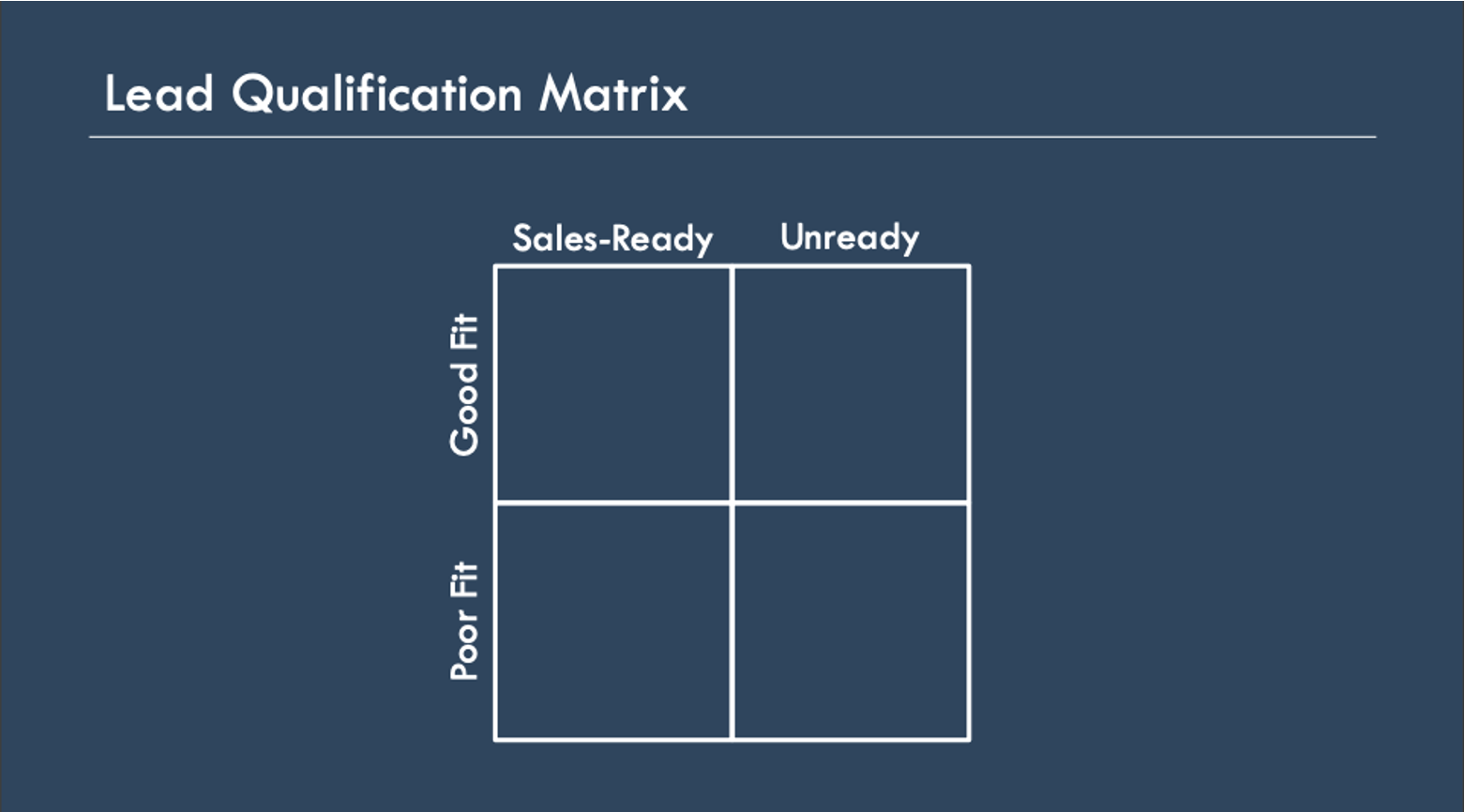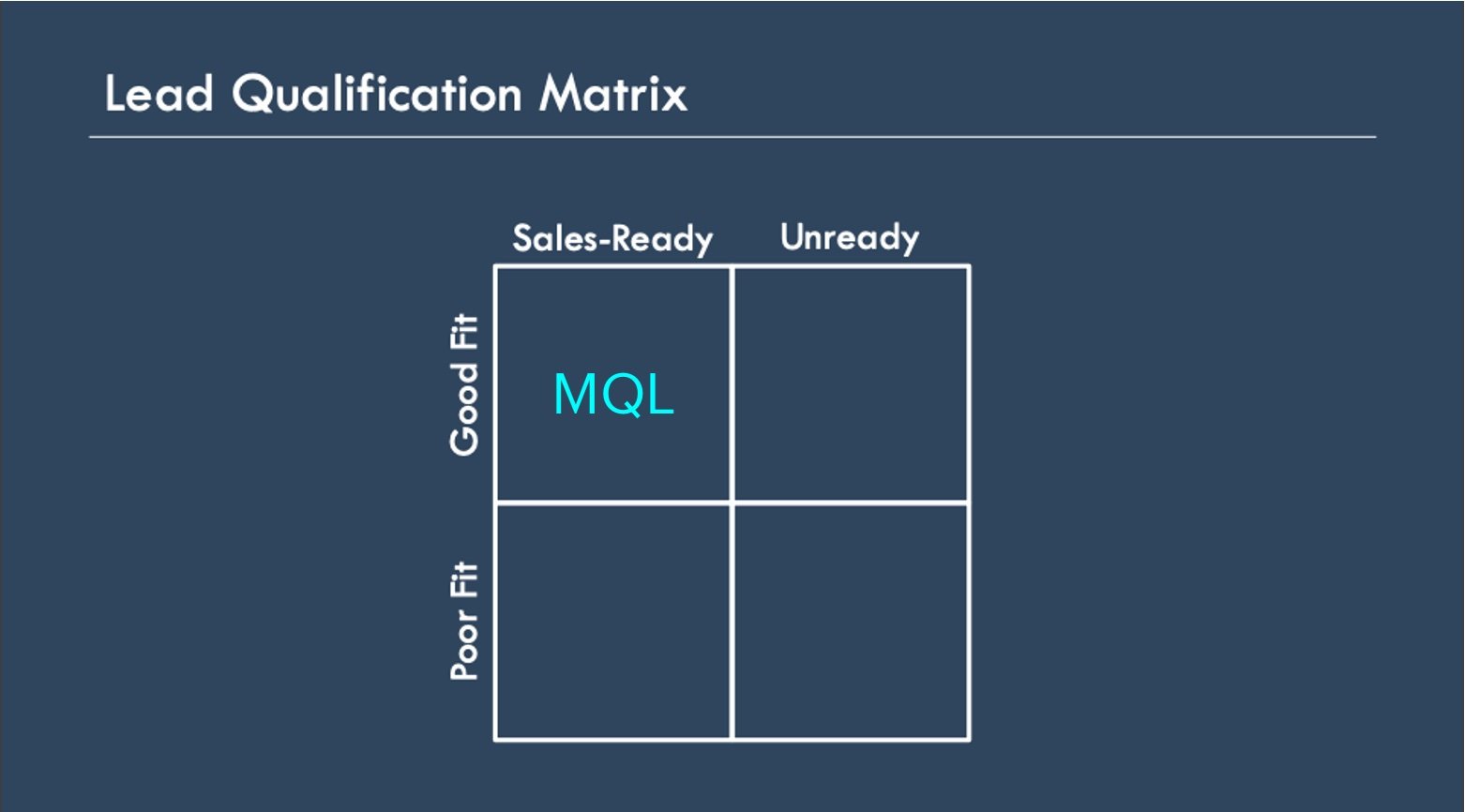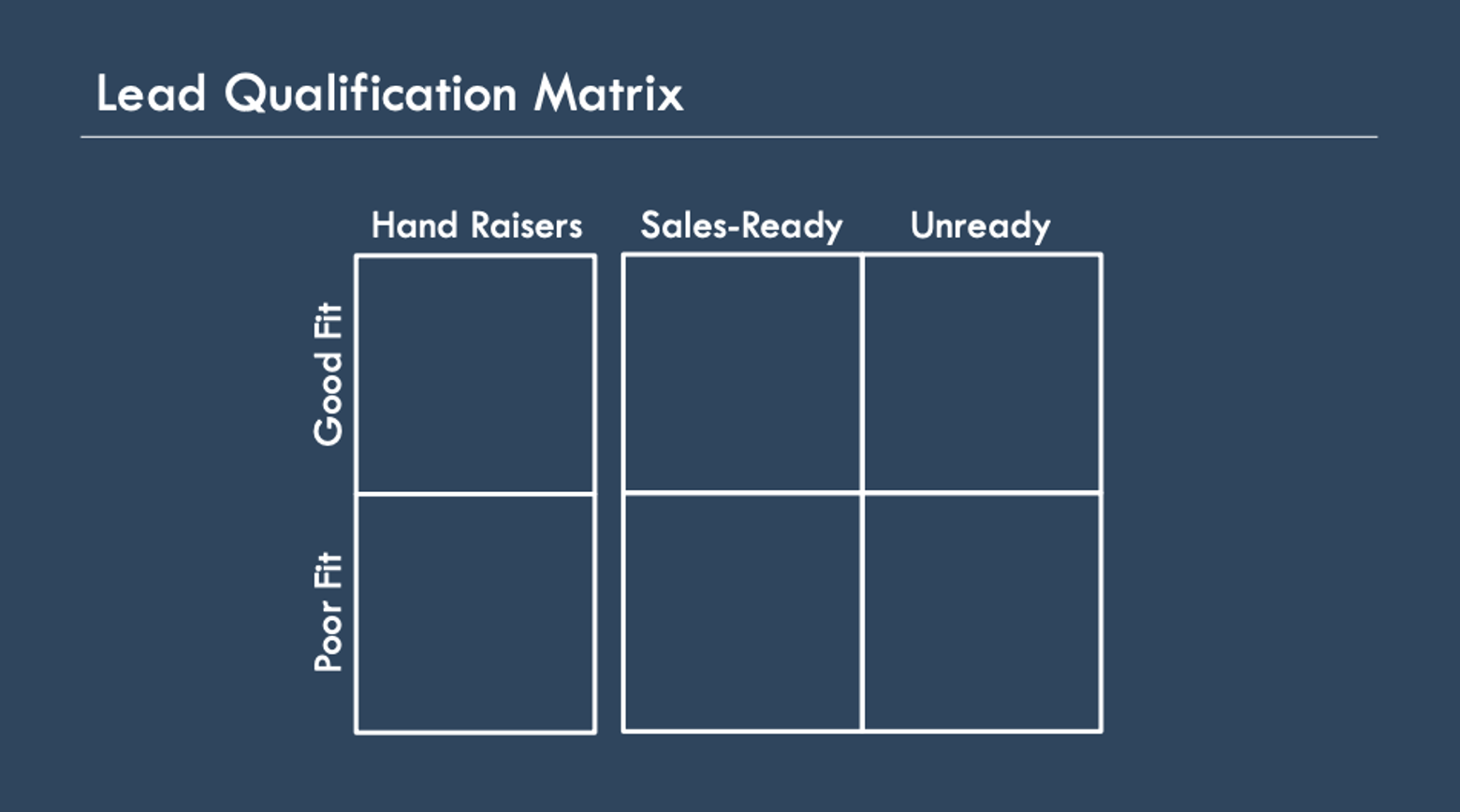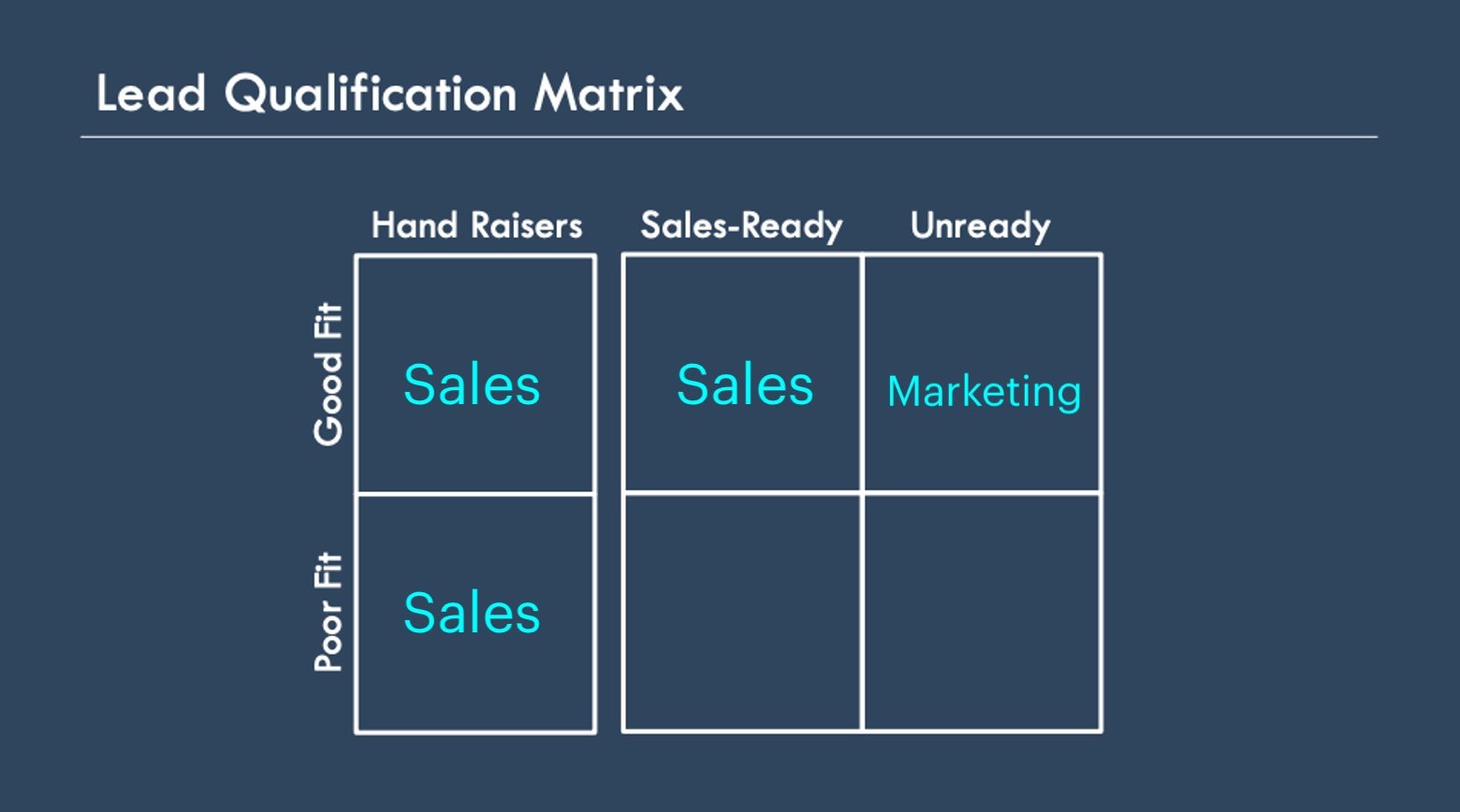Getting lead and sales qualification right, enables your marketing and sales team to get on the same page and close more deals.
One thing as an agency that we’ve noticed over and over again working with startups, SMBs right up to large corporations, is inconsistency around lead qualification.
In other words, crystal-clear definitions of what defines a Marketing Qualified Lead (MQL), Sales Qualified Lead (SQL) and Opportunity — commonly referred to as lifecycle stages.
The importance of getting this right can’t be understated.
Why is lead / sales qualification important?
Lead and sales qualification ensures that the right leads are being targeted with the right messaging and that the sales team is only spending time on leads that are likely to convert into customers.
Ultimately, lead and sales qualification leads to higher conversion rates, increased sales velocity, and a more streamlined sales and marketing process. If you're struggling to generate sales, having a clear lead qualification process can help you isolate where the 'block' in the sales funnel is.
Is it the lead > MQL conversion rate?
Is it the MQL > SQL conversion rate?
Is it the SQL > opportunity conversion rate?
Is it the opportunity > customer conversion rate?
As business owners, sales and marketing professionals, it's vital to have your finger on the pulse when it comes to the above.
Don't underestimate the importance of getting this right — it could be the difference between hitting your revenue targets or falling short.
What is a lead?
A lead is any person who indicates interest in a company's product or service in some way, shape, or form.
At that point, you’ve given them something of value through a gated piece of content or related offer such that they’re willing to provide details about themselves. Typically, you might only have their first name and email address only at this stage.
This is really the entry point of your sales funnel. This lead has likely downloaded a top-of-funnel (TOF) lead magnet, attended a webinar or done something else that indicates that they're in the education / research phase of the customer journey — and likely, not quite ready for sales.
What is a Marketing Qualified Lead (MQL)?
A Marketing Qualified Lead (MQL) is a lead that the marketing team has deemed more likely to become a customer compared to others — in other words, marketing believes that they're a good fit and sales-ready. This determination is based on criteria such as which: web pages were visited, content offers were downloaded, CTAs were clicked, webinars attended and social posts were interacted with.
A Marketing Qualified Lead (MQL) is a potential customer who has shown a specific level of interest in a company's products or services.
Note: MQLs are not yet ready to make a purchase, but they have demonstrated enough interest and engagement by the marketing team to be considered a prospect.
By identifying MQLs, marketers can then target and nurture them with tailored messaging and content to move them further down the funnel and eventually convert them into Sales Qualified Leads (SQLs), opportunities and customers!
Ensuring that MQLs are properly identified and nurtured is a vital component of a successful marketing and sales strategy.
For marketers, generating MQLs is typically how you're measured and all that your sales team cares about. Marketing cannot target or identify high-quality leads without aligning with sales. And sales will not have access to MQLs without the help of marketing.
Once sales receives MQLs from marketing, they perform their own qualification process (more on that below).
Not only does this save sales reps time, but it also ensures marketing and sales are aligned on who your buyer personas are, what type of marketing content brings the right prospects for your business in, and more.
So do you define and agree what makes someone a MQL? Here are some questions that you can use:
- Are they based in a certain country?
- Does their job title include certain keywords?
- How many employees does their company have?
- Have they downloaded any middle-of-funnel (MOF) content?
- How many website pages have they visited?
- Have they view some of our bottom-of-funnel website pages (e.g. pricing or case studies or services pages)?
- Are they opening and clicking on our marketing emails?
After defining what constitutes a MQL for your business, your marketing team can come up with specific points to score your leads automatically and make the marketing to sales handoff process more automated (more on that in another blog!). Having an agreed Ideal Customer Profile or ICP can really help here.
If a lead doesn't meet your set criteria, they should be classified as a Lead.


What is a Sales Qualified Lead (SQL)?
A Sales Qualified Lead (SQL) is a prospective customer that is sales-ready. Typically, this lead has expressed enough interest in your product or service, that they're ready to move into your sales process. Usually, they've been researched and vetted by your marketing department (as per above) and then handed off to your sales team.
And importantly, your sales team has also vetted and contacted these leads and agrees that they are both a good fit for your products or services and are sales-ready.
In most cases, a meeting is involved to move someone from a MQL to a SQL where sales can speak with them and qualify them. This meeting could be a demo, discovery call, free audit or anything that initiates a conversation between sales and the lead.
The biggest difference between an SQL and an MQL is the intent to buy.
An SQL is someone who is ready to speak to sales with the intent to purchase the product or service offered. The SQL stage is especially important because it guards the opportunity stage that follows, which requires a lot of time and attention, and where only select leads should end up.
Pro tip: Knowing this difference is crucial because it determines what lead nurturing process the customer moves through. You wouldn’t want to serve leads content that is not related to their buyer’s journey. Additionally, MQLs are not ready to make a purchase, and sending them off to your sales team prematurely can turn them off to your product or service and waste the sales rep’s time. For example, you wouldn’t send a lead to your sales team if they were a first-time visitor to your site and downloaded some research-based top-of-funnel (TOF) informational content.
Converting an MQL into an SQL is a major jump. Studies show that 90% of MQL sales are never converted into SQLs because they were classified as an MQL much too early in the buyer’s journey. This can create friction between the marketing and sales team big time!
If sales speak to a MQL but determine that they're a good fit but not sales-ready, they will stay as a MQL with a lead status 'Unready' or 'Unqualified' or similar to alert marketing that sales has been in contact but marketing need to keep nurturing them.
The above process works 90% of the time, but there are times where someone will skip the MQL stage and go straight to SQL — we call these Hand Raisers. They might book in a demo, free audit or some other bottom-of-funnel (BOF) action that indicates they're sales-ready. Although they're sales-ready, they may still not be good fit but a poor fit, but that's sales job to qualify, because the lead has skipped marketing.


Using qualification frameworks like BANT and others can help sales reps make the most of their time when speaking with SQLs.
Originally developed by IBM, BANT covers all the broad strokes of opportunity- and stakeholder-level qualification. BANT seeks to uncover the following four pieces of information:
- Budget. Is the prospect capable of buying?
- Authority. Does your contact have adequate authority to sign off on a purchase?
- Need. Does the prospect have a business pain you can solve?
- Timeline. When is the prospect planning to buy?"
Another qualification framework that sales reps can use here is GPCTBA/C&I (epic acronym right!).
Yes, it’s a long acronym, but a useful one. Developed at HubSpot, the qualification framework GPCTBA/C&I (Goals, Plans, Challenges, Timeline, Budget, Authority/Negative Consequences and Positive Implications) is a response to changes in buyer behaviour.
Buyers come to the sales process increasingly informed, so salespeople need to add value on top of product/service knowledge.
What is an opportunity (deal)?
A sales opportunity is a qualified lead who has a high probability of becoming a customer. An opportunity should have a pain point your product or service can solve and an interest in your offering.
An SQL becomes an opportunity when they confirm your company could provide a viable solution to their problem and decide to continue the sales process by exploring your products and services in greater detail.
Becoming an opportunity is also what determines when you should create a deal and put the opportunity into your sales pipeline.
Conclusion
In conclusion, lead and sales qualification is a crucial component of a successful marketing and sales strategy.
By identifying and correctly defining Leads, Marketing Qualified Leads (MQLs), Sales Qualified Leads (SQLs) and Opportunities (Deals), marketers and sales teams can work together to target the right leads with the right messaging and content, ultimately resulting in higher conversion rates and increased sales velocity.
It's important to have clear definitions and criteria for each stage of the funnel, as well as alignment between marketing and sales teams.
If you need help with lead and sales qualification, reach out to us here or book in a Free Marketing Strategy Session here.
Nathan Reiche
Nathan is the CEO and Founder of Content Chemistry, a digital marketing agency and a HubSpot Platinum Solutions Partner. He has over 15 years' marketing experience in Australia and Europe, working both on the client-side and as an agency. He's passionate about content/inbound marketing, SEO and sales funnels. And yes he's been told that he looks like Roger Federer.
